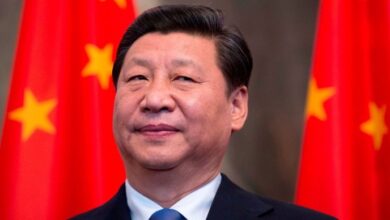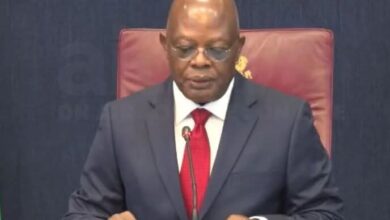Benue ambush: 7 more bodies of security operatives recovered

The military governments of Burkina Faso, Mali, and Niger have formally announced their withdrawal from the International Criminal Court (ICC), describing the tribunal as a “neo-colonial” tool of Western powers.
In a joint statement on Monday, the three countries, which make up the Alliance of Sahel States (AES), accused the ICC of serving imperialist interests rather than pursuing genuine justice.
“The ICC has proven itself incapable of handling and prosecuting proven war crimes, crimes against humanity, crimes of genocide, and crimes of aggression.
It has instead become an instrument of neo-colonialist repression in the hands of imperialism,” the statement declared.
The decision follows a series of anti-Western policies taken by the Sahel bloc since military rulers seized power in Bamako, Ouagadougou, and Niamey between 2020 and 2023.
The AES has positioned itself as an alternative voice in Africa, strongly opposing France’s lingering influence in the region and aligning more closely with powers such as Russia.
Under ICC rules, a state’s withdrawal only becomes effective one year after its formal notification is submitted to the United Nations secretary-general.
This means Burkina Faso, Mali, and Niger will technically remain under the court’s jurisdiction until that period lapses.
Observers note that the move highlights a growing shift in Africa’s relationship with international institutions, especially those based in Europe.
The ICC, headquartered in The Hague and established in 2002, was created to prosecute individuals accused of the gravest crimes including war crimes, genocide, and crimes against humanity when national courts fail to act.
Critics in Africa have long accused the court of bias, pointing to the fact that most of its prosecutions have targeted African leaders, while powerful nations often escape accountability.
By branding it “neo-colonial,” the Sahel states are echoing a wider resentment that the ICC unfairly singles out weaker countries while ignoring global powers.
The timing is also significant. Russia’s president, Vladimir Putin, has been under an ICC arrest warrant since March 2023 over alleged war crimes in Ukraine.
Analysts say the Sahel states’ withdrawal aligns them with Moscow, which has increased its military and economic ties with the region.
Meanwhile, Burkina Faso, Mali, and Niger continue to struggle with deadly insurgencies from jihadist groups linked to Al-Qaeda and the Islamic State.
Their own security forces have also faced allegations of atrocities against civilians, which the ICC could potentially have investigated.
The three governments say they now intend to build “indigenous mechanisms for the consolidation of peace and justice,” signaling a preference for regional or domestic solutions rather than international oversight.
This decision adds another layer to the Sahel’s defiance of Western-backed institutions, raising questions about accountability, justice, and the future of international law in Africa.
Post Views: 113





